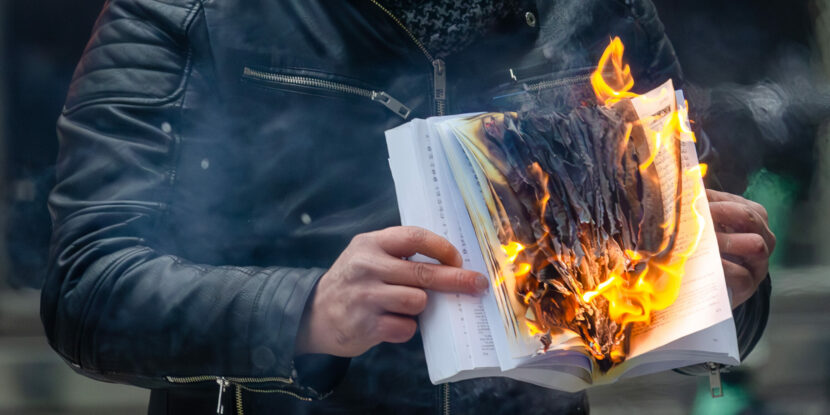
PULSE POINTS:
❓What Happened: Federal Bureau of Investigation (FBI) Director Kash Patel is remaking the bureau from the inside out, purging entrenched bureaucrats, reviving stalled investigations, and imposing long-overdue discipline on an agency many Americans see as corrupted beyond recognition.
👤Who’s Involved: FBI Director Kash Patel, Deputy Director Dan Bongino, legacy FBI leadership, former agents tied to anti-Trump investigations.
Your free, daily feed from The National Pulse.
🧾Key Quote: “The Director and I will have most of our incoming reform teams in place by next week,” Bongino announced.
⚠️Fallout: Critics complain of lost institutional memory, but supporters say the deep state is finally being dismantled.
📌Significance: Patel’s efforts reflect the America First movement’s demand to defang the FBI’s politicized machinery, restore public trust, and refocus the bureau on real threats to national security.
IN FULL:
The Federal Bureau of Investigation (FBI) is undergoing its most radical transformation in decades under Director Kash Patel. Nominated by President Donald J. Trump, Patel has been rapidly expelling entrenched operatives and retooling the bureau’s mission around law enforcement, not political activism.
In his book Government Gangsters, Patel declared that the FBI’s leadership had become so compromised that it posed a threat to the American people, calling for “drastic measures.” Now, those measures are being implemented: Polygraph tests are being administered across the bureau to plug leaks to the anti-Trump media. Top agents tied to politically charged investigations—many of whom stonewalled oversight or clashed with Trump-era initiatives—have been demoted, reassigned, or retired altogether. Deputy Director Dan Bongino states new leadership teams are nearly fully installed, with more changes imminent.
While Patel’s critics claim the changes are robbing the law enforcement agency of institutional memory, his supporters say achieving a fundamental shift is the reform’s primary purpose. Years of scandal—targeting Catholic parishes, surveilling parents at school board meetings, burying the Hunter Biden laptop story, and promoting Russiagate disinformation—left the bureau unmoored from its core mission.
The Washington field office’s public corruption squad—once the engine behind investigations targeting Trump and his allies—has been disbanded. Field offices nationwide are seeing leadership turnover, with new blood brought in to re-center the FBI on law enforcement. To fill key posts, Patel is bypassing the usual ladder-climbing bureaucracy, promoting from outside the agency and the broader D.C. bubble, even bringing back retired agents to run critical divisions.
Notably, the FBI is also revisiting unresolved investigations that have lingered without explanation under previous leadership. For instance, Bongino confirmed the bureau is re-examining a 2022 Supreme Court leak, the unsolved pipe bombs from January 6, and the infamous bag of cocaine found in the Biden White House.
Behind the scenes, some agents and analysts are retiring rather than adapt to the new accountability standards. One of Patel’s most controversial but effective tools has been the expanded use of polygraphs to identify leakers and root out political operatives embedded in the agency. Critics, including former FBI staff, say this breaks from precedent. Supporters call it long-overdue discipline for an agency that spent years leaking to CNN and ignoring real crimes to pursue partisan politics.

PULSE POINTS:
❓What Happened: A court in Britain has convicted a man for burning the Islamic Quran during a protest outside the Turkish consulate, igniting backlash from free speech advocates who say the ruling revives the country’s defunct blasphemy laws.
👤Who’s Involved: Hamit Coskun, Westminster Magistrates’ Court, Judge John McGarva, the Crown Prosecution Service, the Free Speech Union.
Your free, daily feed from The National Pulse.
🧾Key Quote: “This decision is wrong. It revives a blasphemy law that Parliament repealed,” said Robert Jenrick, Shadow Justice Secretary.
⚠️Fallout: Coskun’s conviction under the Public Order Act for “religiously aggravated disorderly conduct” drew sharp criticism from civil liberties groups and sparked plans for a legal appeal, potentially reaching the European Court of Human Rights.
📌Significance: The case underscores growing concerns over free speech in the United Kingdom, where critics argue religious sensitivities are being prioritized over basic protest rights—particularly when it comes to Islam.
IN FULL:
A British court has found 50-year-old atheist Hamit Coskun guilty of a “religiously aggravated public order offence” after he publicly burned a copy of the Quran during a political protest in central London. Coskun, an Armenian-Kurdish asylum seeker who fled Turkey citing persecution, was convicted on Monday at Westminster Magistrates’ Court after a one-day trial.
The February 13 demonstration took place outside the Turkish consulate in Knightsbridge, where Coskun shouted “Islam is religion of terrorism” and “F**k Islam” while holding the burning Islamic text over his head. Moments later, he was violently attacked by a passerby who appeared to slash at him with a blade and kicked him to the ground. That man is due to stand trial in 2027.
Despite claims from the Crown Prosecution Service (CPS) that Coskun was not prosecuted for destroying the book in itself, but for the “disorderly” nature of burning the book, the case has reignited a fierce debate over whether the United Kingdom is reintroducing blasphemy laws by stealth. Initially, Coskun was charged with harassing the “religious institution of Islam,” with the charges being revised after public outcry.
Judge John McGarva acknowledged flaws in the original CPS charge, which referred to Islam “as if it was a person,” but upheld the revised charge. He rejected arguments from Coskun’s defense team that his protest was aimed at criticizing a religion, not its followers, and therefore protected speech.
“You don’t distinguish between the two,” McGarva insisted during sentencing. “I find you have a deep-seated hatred of Islam and its followers.”
Coskun was fined £240 (~$325) and is currently in hiding.
The Free Speech Union (FSU) and the National Secular Society (NSS), both of which funded Coskun’s defense, condemned the ruling and announced plans to appeal. “This is deeply disappointing,” the FSU said in a statement. “Religious tolerance doesn’t require non-believers to respect the blasphemy codes of believers.”
Robert Jenrick, Shadow Justice Secretary and former immigration minister, said the court’s decision “revives a blasphemy law that Parliament repealed,” adding: “Free speech is under threat. I have no confidence in Two-Tier Keir [Starmer] to defend the rights of the public to criticise all religions.”
The United Kingdom repealed its last formal blasphemy statutes in 2008, but recent prosecutions under the Public Order Act—particularly those involving Islam—have alarmed critics who argue religious protections are being selectively enforced.
Coskun, who had fled Turkey under President Recep Tayyip Erdoğan’s Islamist regime, testified that his protest was a direct response to government oppression in his home country. His lawyer, Katy Thorne KC, said the ruling effectively criminalizes any public burning of a religious book, regardless of motive or message, warning that it “chills the right of citizens to criticise religion.”
The FSU has pledged to appeal the ruling all the way to the European Court of Human Rights if necessary.
show less

 3 weeks ago
2
3 weeks ago
2








 English (US) ·
English (US) ·